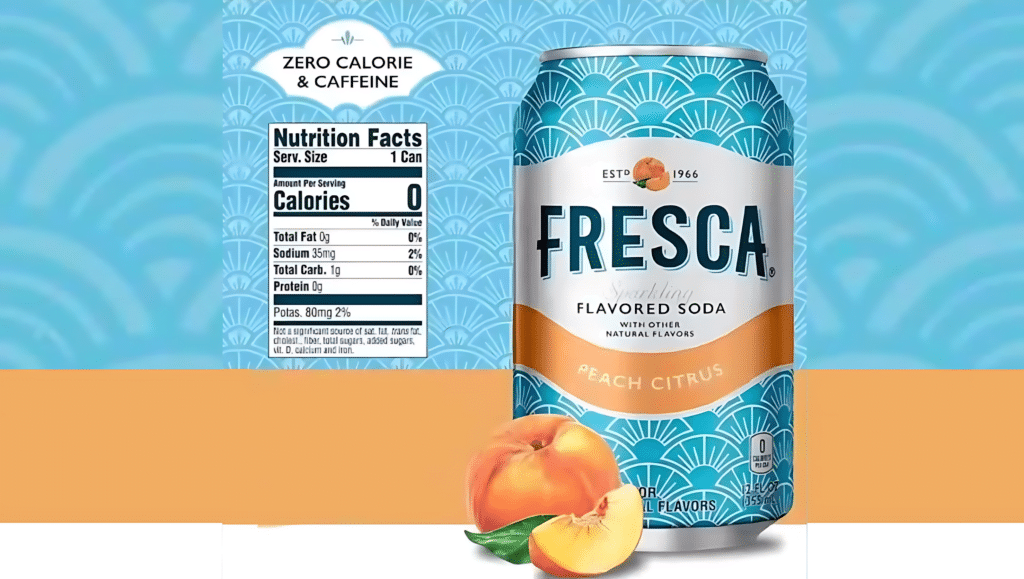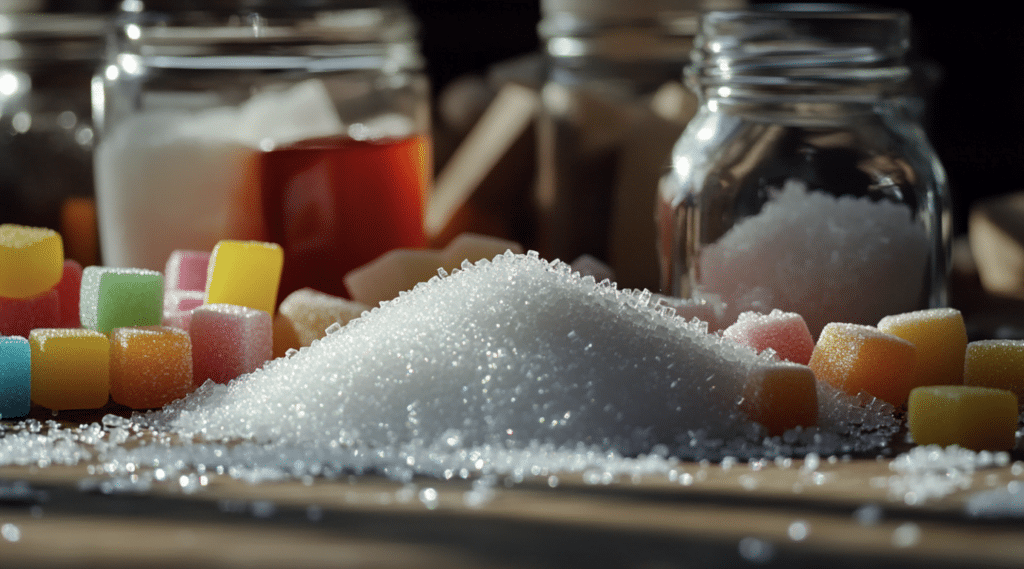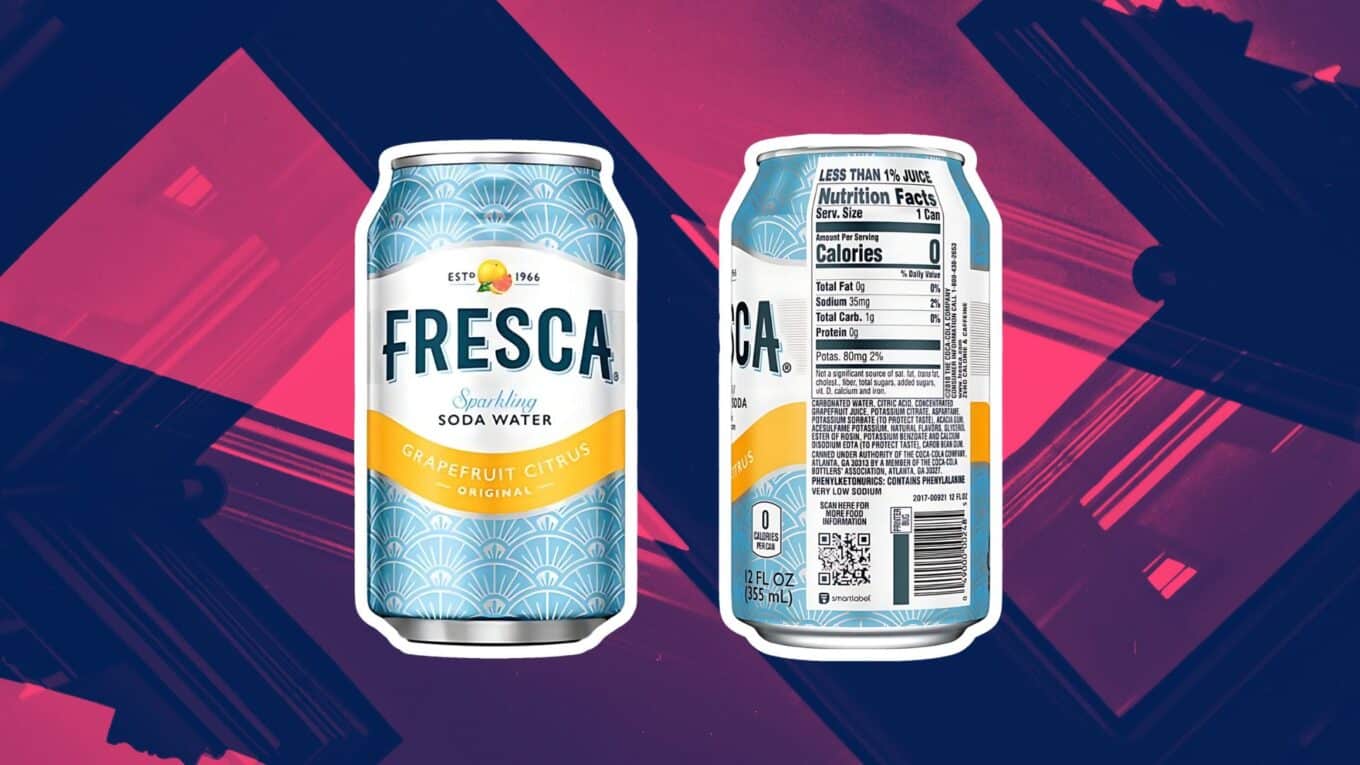Many enjoy Fresca’s crisp, citrusy taste as a refreshing, zero-calorie beverage option. However, with growing awareness about artificial ingredients and their potential health effects, you might wonder if Fresca is a good choice for your well-being.
This article will examine the safety of Fresca’s ingredients, examining the positives and potential concerns. You’ll explore this popular drink’s artificial sweeteners, preservatives, and other components.
By the end, you’ll better understand how Fresca fits into a balanced diet and lifestyle. Let’s uncover the facts behind this fizzy favorite so you can make an informed decision about including it in your beverage lineup.
The Impact of Key Ingredients in Fresca

1. Aspartame
This artificial sweetener provides Fresca’s sweet taste without added calories. Some studies suggest potential health concerns while approved for use by regulatory agencies. These include reports of headaches and dizziness in sensitive individuals. Long-term health effects are still being researched.
2. Acesulfame Potassium
Another calorie-free sweetener used in Fresca. It’s been deemed safe by food safety authorities, but some researchers have called for more studies on its long-term consumption effects.
3. Calcium Disodium EDTA
This preservative helps maintain Fresca’s flavor and appearance. While it’s generally considered safe in small amounts, excessive intake might interfere with the body’s absorption of certain minerals.
4. Potassium Benzoate
Used to prevent mold and bacterial growth in Fresca. Some people may experience mild allergic reactions. Under certain conditions, it can form benzene, which requires careful monitoring of beverages.
5. Citric Acid
This common food additive gives Fresca its tart flavor. Regularly consuming acidic drinks may gradually wear down tooth enamel, potentially leading to increased sensitivity and decay risk over time.
Fresca’s Nutritional Profile
Fresca has gained popularity among health-conscious consumers for its distinctive nutritional profile. This fizzy beverage stands out in the soft drink market by offering a refreshing taste without the burden of calories, sugar, or caffeine.
For those mindful of their dietary intake, Fresca presents an intriguing option. Let’s explore the benefits and potential drawbacks of this unique nutritional composition to help you make an informed choice about including Fresca in your diet.
Benefits of Fresca
1. Zero Calories
Fresca contains no calories, making it an attractive choice for individuals managing their weight or following low-calorie eating plans. By replacing higher-calorie beverages with Fresca, one can potentially reduce overall daily calorie intake without sacrificing the enjoyment of a flavored drink.
2. Zero Sugar and Fat
The absence of sugar and fat in Fresca makes it suitable for people with specific dietary needs. This characteristic is particularly beneficial for those managing blood sugar levels or adhering to low-fat dietary guidelines. It offers a flavorful alternative without compromising these nutritional goals.
3. Caffeine-Free
As a caffeine-free beverage, Fresca provides a refreshing option for those sensitive to caffeine or considering limiting their intake. This feature can be especially helpful for maintaining healthy sleep patterns and reducing anxiety associated with caffeine consumption.
Drawbacks of Fresca
Artificial Sweeteners

Fresca achieves its sweet taste through artificial sweeteners like aspartame and acesulfame potassium. While these substances provide sweetness without calories, some studies suggest potential health concerns associated with long-term consumption. It’s important to consider these factors when making dietary choices.
Preservatives
Fresca contains preservatives such as potassium benzoate and sorbate to maintain freshness and extend shelf life. While generally recognized as safe in small amounts, some individuals may experience sensitivity to these additives. Additionally, under certain conditions, some preservatives may form compounds requiring careful beverage monitoring.
Practical Tips for Fresca Consumption
When consumed thoughtfully, Fresca can be part of a balanced lifestyle. Following these practical guidelines allows you to savor this beverage while being mindful of your overall health and well-being.
Moderation Guidelines
While Fresca can be a refreshing treat, it’s wise to limit consumption due to its artificial ingredients. Consider enjoying Fresca as an occasional indulgence rather than a daily staple. This approach allows you to appreciate its unique flavor without overexposure to its synthetic components.
Enhancing Fresca Safely
1. Dilution
Mix Fresca with plain water to reduce the concentration of artificial ingredients and acidity. This simple step can help lessen potential impacts on dental health and overall well-being. Experiment with different ratios to find a balance that satisfies your taste preferences while reducing exposure to synthetic components.
2. Dietary Balance
If you choose to include Fresca in your diet, ensure it’s part of a well-rounded diet rich in whole, unprocessed foods. A varied diet abundant in fruits, vegetables, and natural beverages can help offset any potential effects of consuming Fresca. Remember, no single food or drink defines your overall health – the balance of your entire diet matters most.
Potential Health Risks Involved
Long-Term Effects
While research is ongoing, some studies suggest that regular, long-term consumption of beverages containing artificial sweeteners and preservatives may be associated with:
- Metabolic changes: Some research indicates potential links to insulin resistance and weight gain, though results are mixed.
- Neurological concerns: Certain studies have reported possible connections to mood changes and cognitive issues, but more research is needed.
- Dental health: The acidity in Fresca may contribute to gradual tooth enamel erosion over time.
- Hormonal effects: Some researchers have noted potential impacts on thyroid function and fertility, though the evidence is limited.
Short-Term Effects
Some individuals may experience immediate or short-term effects after consuming Fresca, including:
- Digestive issues: Gas, bloating, or stomach discomfort in sensitive individuals.
- Allergic reactions: Rare mild allergic responses to certain preservatives have been reported.
- Headaches: Some people report headaches after consuming artificial sweeteners, though this varies greatly among individuals.
- Dental sensitivity: The acidic nature of the drink may temporarily increase tooth sensitivity.
Conclusion
Fresca is a refreshing, zero-calorie alternative to carbonated beverages. Its crisp, citrusy flavor appeals to many, especially those watching their calorie and sugar intake. However, like many processed drinks, Fresca has considerations.
The artificial sweeteners and preservatives it contains have been the subject of ongoing health debates. While enjoying Fresca occasionally can be part of a varied diet, it’s wise to be mindful of your consumption. Consider balancing it with other beverage choices, such as water or unsweetened tea.
Remember, your overall dietary pattern matters most. You can make choices that align with your health goals and preferences by staying informed about what you drink and consume in moderation.
Frequently Asked Questions
Has Fresca Stayed True to Its Original Ingredients?
Fresca has changed its formula over time, notably removing brominated vegetable oil (BVO) in 2020 and adjusting sweeteners, but maintains its core citrus flavor profile.
What Chemicals are in Fresca?
Fresca contains carbonated water, citric acid, natural flavors, potassium benzoate, acesulfame potassium, and sucralose. It previously included BVO, but it was removed in 2020 due to health concerns.
What is BVO in Fresca?
BVO (brominated vegetable oil) was an emulsifier in Fresca until 2020. It kept citrus flavoring evenly distributed but was removed due to potential health risks associated with bromine.




